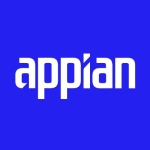What is our primary use case?
The use cases attached to Informatica MDM may vary for different industries. Suppose I talk about industries related to healthcare and life sciences. In the aforementioned scenario related to healthcare and life sciences, there have been situations where a lot of sales representatives have issues while trying to set up calls with different physicians. Informatica or any MDM solution usually helps people in the healthcare industry optimize their business processes, especially when setting up calls with different physicians. Typically, Informatica MDM helps to reduce the number of duplicate details related to a physician or the data related to a particular organization data so that the sales representatives don't end up sending duplicate call invites to the same physician, especially those physicians who have probably different versions of their own name.
What is most valuable?
I think the integration feature is probably one of the key features in Informatica MDM. When compared to other Indian products, Informatica MDM has an edge due to its integration capabilities.
What needs improvement?
I don't see any area of improvement required when it comes to Informatica MDM since it is one of the leading products in the market. Some unification in Informatica MDM's UI side would probably make it better. I find Reltio more intuitive when compared to Informatica MDM's UI. Informatica MDM's UI is not intuitive enough. Informatica MDM's UI can be made a bit more intuitive.
I think all the latest up-to-date features are made available in Informatica solution. When it comes to Informatica MDM, all the features are mostly included, because of which there is nothing that needs to be added.
The long response time taken by the technical team of Informatica can be considered for improvement.
For how long have I used the solution?
I have experience with Informatica MDM. I currently work for a company that has an alliance partnership with Informatica. I use Informatica to develop MDM solutions for my company's clients. I work as a solution provider since my company wants its employees to work as middlemen for Informatica products. In my company, we use Informatica to build solutions for clients. I use the latest version of Informatica MDM.
What do I think about the stability of the solution?
Stability-wise, I rate the solution a ten out of ten.
What do I think about the scalability of the solution?
It is a highly scalable solution. Scalability-wise, I rate the solution a nine out of ten.
If it is for a single region deployment, the number of users who use the solution can vary somewhere between ten to fifteen, but if it is for a global deployment, then there could be hundreds of users who would use the solution.
The solution is used on a daily basis in my organization.
How are customer service and support?
If there is a super high-priority issue, then the technical team of Informatica is super responsive. However, if it is a low-priority issue, they usually take a little longer than their usual response time. I rate the technical support an eight out of ten.
How would you rate customer service and support?
How was the initial setup?
When it comes to Informatica MDM, it is mostly a cloud or SaaS-based product, because of which the configuration or setup phases may not pose a challenge. Most of the MDM solutions are now SaaS-based products that the product vendor maintains, and so such products are mostly accessed through web URLs over the cloud. Right now, any configuration or setup is not challenging, which used to be the case several years ago when these solutions were deployed on an on-premises model, because of which installation and other such procedures were required. Currently, most products are SaaS-based solutions, so there are no such challenges with respect to setup.
I rate the initial setup phase of Informatica MDM as a nine on a scale of one to ten, where one is difficult, and ten is easy.
Predominantly, Informatica MDM gets deployed on a public cloud. There is a provision to go ahead with if any of our company's clients want the product to be deployed on a private cloud, but it comes at a very high cost.
The time taken for the end-to-end deployment process depends on the complexity of the project that you are working on, but if I have to give you a standard answer, it would be approximately six months to start from scratch until production goes live.
Considering the members from the production and UAT departments, the UAT department dealt with the product for three weeks, and the overall deployment process took place over a month to a month and a half. Around eight staff members were required for the deployment process, including an Informatica developer responsible for configurations, a lead developer, two people for integration, a project manager, and one solution architect.
What about the implementation team?
One of the in-house teams in my company carried out the deployment process.
What was our ROI?
I would say that the return on investment from the use of the solution is fairly good.
I rate the product's ROI a nine on a scale of one to ten, where one is zero percent return on investment, and ten is one hundred percent return on investment.
What's my experience with pricing, setup cost, and licensing?
I rate the product's pricing a nine on a scale of one to ten, where one is low price, and ten is high price. The product does come at a certain cost since it is one of the best products in the market. The payments for the solution are made on a subscription-based model, meaning it is a pay-as-you-go model. In general, the costs attached to the solution depend on its usage.
The costs, in addition to the standard licensing fees for the solution, depend on users' requirements.
What other advice do I have?
The people required for the maintenance of Informatica MDM depend upon the requirements of the clients who use the product.
I would say that a team of five people that includes a solution architect who operates in a partial capacity would be good enough to take care of Informatica MDM's maintenance phase.
I recommend the solution to those who plan to use it.
I rate the overall product a nine out of ten.
Which deployment model are you using for this solution?
Public Cloud
Disclosure: My company has a business relationship with this vendor other than being a customer. Partner




















